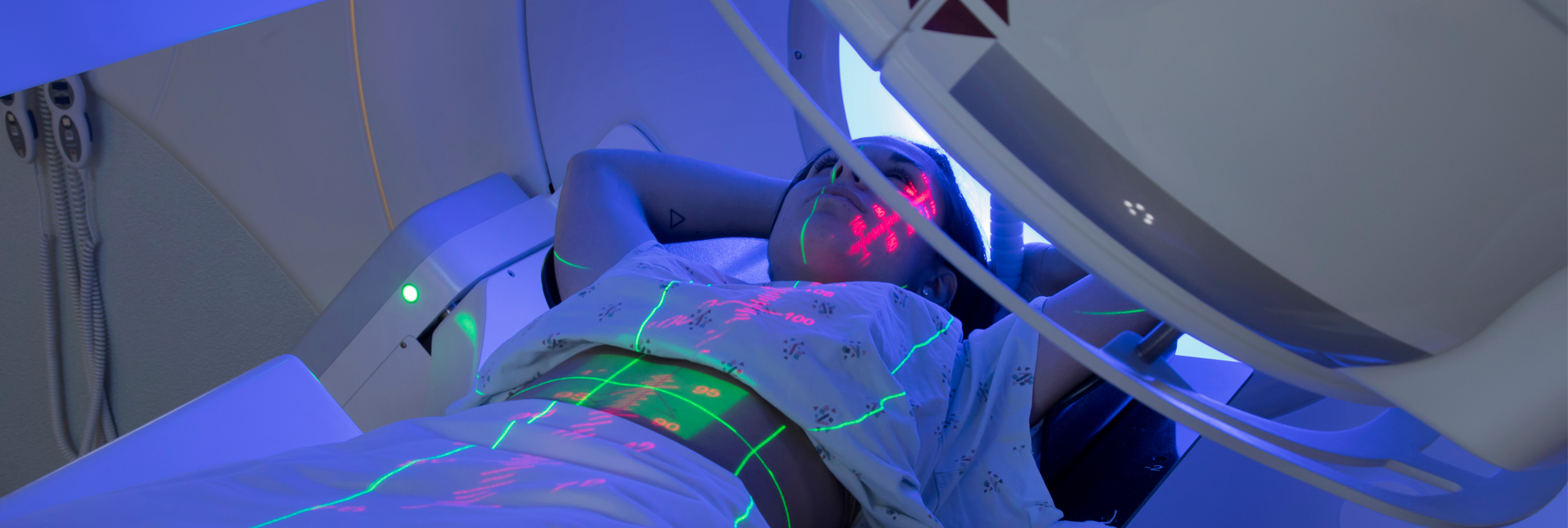Results of radiotherapy quality assurance in the PEACE-1 trial show high adherence to protocol
10 May 2022
Quality assurance (QA) in radiotherapy is vital in ensuring the best possible performance from the equipment and personnel. In addition, it is valuable in improving the information obtained from images, lowering costs, and delivering the correct radiation dose. Since clinical trials aim to provide the best evidence that a treatment is beneficial to patients, it is essential to ensure that any treatment used in a trial is given appropriately and optimally.
The multi-centre EORTC PEACE-1 Phase 3 trial examines the effect of Abiraterone on men with metastatic hormone-naïve1 prostate cancer. Patients have been randomised into groups studying the impact of standard therapy with or without radiotherapy and standard treatment plus Abiraterone with or without radiotherapy. Presenting radiotherapy QA results from the trial to the ESTRO 2022 Congress in Copenhagen in May, Dr Najlaa Alyamani explained that 585 patients were enrolled in the radiotherapy arms where QA was carried out. “After an internal EORTC quality control of individual plans, we submitted them to external reviewers for a case review of delineation (whether the target volumes and the organs at risk were delineated correctly) and the radiotherapy dose and plan (where the prescribed dose was given correctly to the target volumes).
“There were three possible outcomes of each reviewed plan: acceptable per protocol: the radiotherapy plan followed the protocol; acceptable variation: there is a minor deviation from the protocol but not to the extent of affecting the trial outcome; or unacceptable variation: when there is a major deviation from the protocol with the potential to affect the outcome,” she said.
The individual case reviews were carried out either prospectively, where the patient had not yet started radiotherapy and adjustments to the plan were still possible, or retrospectively, which was the case for the majority of patients in this trial. For the delineation review, 88% of the plans were approved (55% acceptable as per protocol, 33% with acceptable variation), but 12% were considered unacceptable. For the radiotherapy dose and plan, 95% were approved (86% acceptable as per protocol, 9% acceptable variation), but 5% were unacceptable.
“Radiotherapy planning is complex, and rigorous QA throughout the process is essential, with the aim of the treatment being sufficiently precise to bring about the greatest benefit while causing the least possible harm. Therefore, it is reassuring that our research showed that over 80% of the case reviews revealed that protocol recommendations were followed either exactly or with minimum variation,” says Dr Alyamani. “And prospective case reviews can minimise these variations even further, though implementing it to all patients has many challenges, particularly in larger trials.”
- Hormone-naïve cancers are patients with metastatic prostate cancer who have never received hormonal therapy.
The PEACE trial is sponsored by Unicancer
Related News
SISAQOL-IMI Consortium Launches Final Recommendations
6 Feb 2025
World Cancer Day 2025: EORTC’s commitment to older patients
4 Feb 2025
EORTC and Immunocore announce enrolment of first patient onto the only active Phase 3 adjuvant trial in uveal melanoma
11 Dec 2024
Minister F. Vandenbroucke visits EORTC Headquarters to strengthen collaborative efforts in clinical cancer research
21 Nov 2024
IMMUcan has completed patient enrolment
12 Nov 2024
EORTC SPRINT clinical cancer study receives support from Rising Tide Foundation to reduce the burden for patients
5 Nov 2024
Pink October at EORTC: Over 60 years of impactful breast cancer research
29 Oct 2024
Spotlight on ENA 2024 News
25 Oct 2024
Do regulations and policies undermine the social value of independent academic research?
25 Oct 2024
EORTC Quality of Life Group’s participation to ISOQOL 2024
10 Oct 2024


